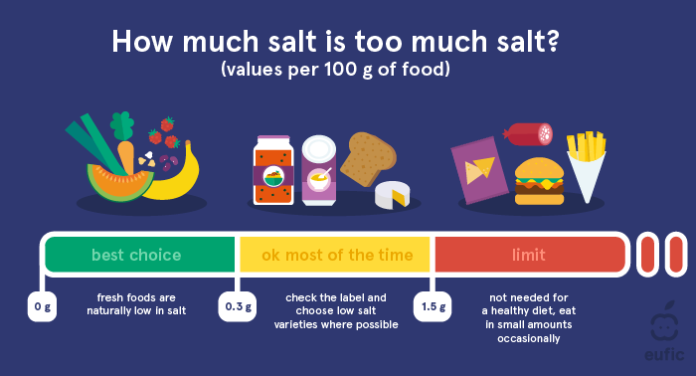The Corporate Accountability and Public Participation Africa (CAPPA) says Nigeria is currently grappling with a staggering burden of noncommunicable diseases (CDs), a fact corroborated by recent data.
The Executive Director of CAPPA, Akinbode Oluwafemi, said this during a journalism training session on salt reduction held in Lagos on Thursday [today].
Oluwafemi pointed out the alarming trend of increased crowdfunding for lifelong diseases associated with NCDs through social media observations.
According to Oluwafemi, Nigeria’s daily salt consumption stands at an estimated 5.8 grams, significantly surpassing the World Health Organisation’s recommended limit of 2 grammes of sodium per day or less than 5 grammes of salt per day, equivalent to just one teaspoon.
“Non-communicable diseases, such as cardiovascular disease, remain the leading cause of death and disability worldwide,” Oluwafemi remarked.
He highlighted hypertension, primarily attributed to excessive salt intake, as accounting for 12 per cent of deaths in Nigeria.
“As a health-focused civil society organisation, our duty is to enlighten the public about the perils associated with their dietary choices, particularly when driven by a lack of awareness,” Oluwafemi stressed.
He reiterated CAPPA’s commitment to advocating for relevant legislation to safeguard Nigerians’ health, while urging journalists to play a pivotal role in the salt reduction campaign.
Expressing gratitude to partners, including the Global Health Advocacy Incubator (GHAI) and the Network for Health Equity and Development (NHED), Oluwafemi emphasised the collaborative effort required to address this pressing public health issue.
Dr Jerome Mafeni, delivering a lecture entitled: “Salt Consumption in Nigeria and the Need for Policy Intervention,” highlighted the alarming statistics that Nigerians are consuming twice the recommended salt intake.
He attributed this trend to dietary habits, cultural preferences, and the prevalence of processed and packaged foods.
Mafeni underscored the adverse health implications of high salt consumption, including high blood pressure, kidney damage, cardiovascular diseases, stroke, and a substantial public health burden.
He advocated for clear targets for salt content in industries, heightened public awareness about health risks, and cost-effective strategies for healthcare savings and economic gains.
Mafeni emphasised the need for rigorous advocacy and regulation to combat this pervasive health issue, proposing policy strategies such as setting salt targets, education and awareness campaigns, and food labeling regulations. (NAN)


